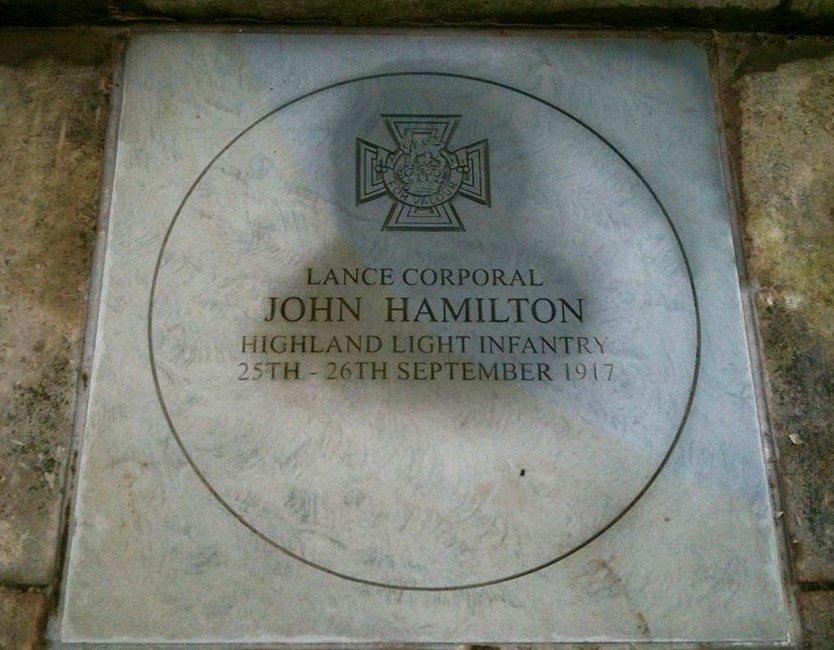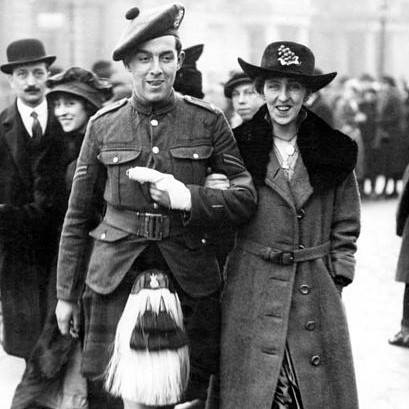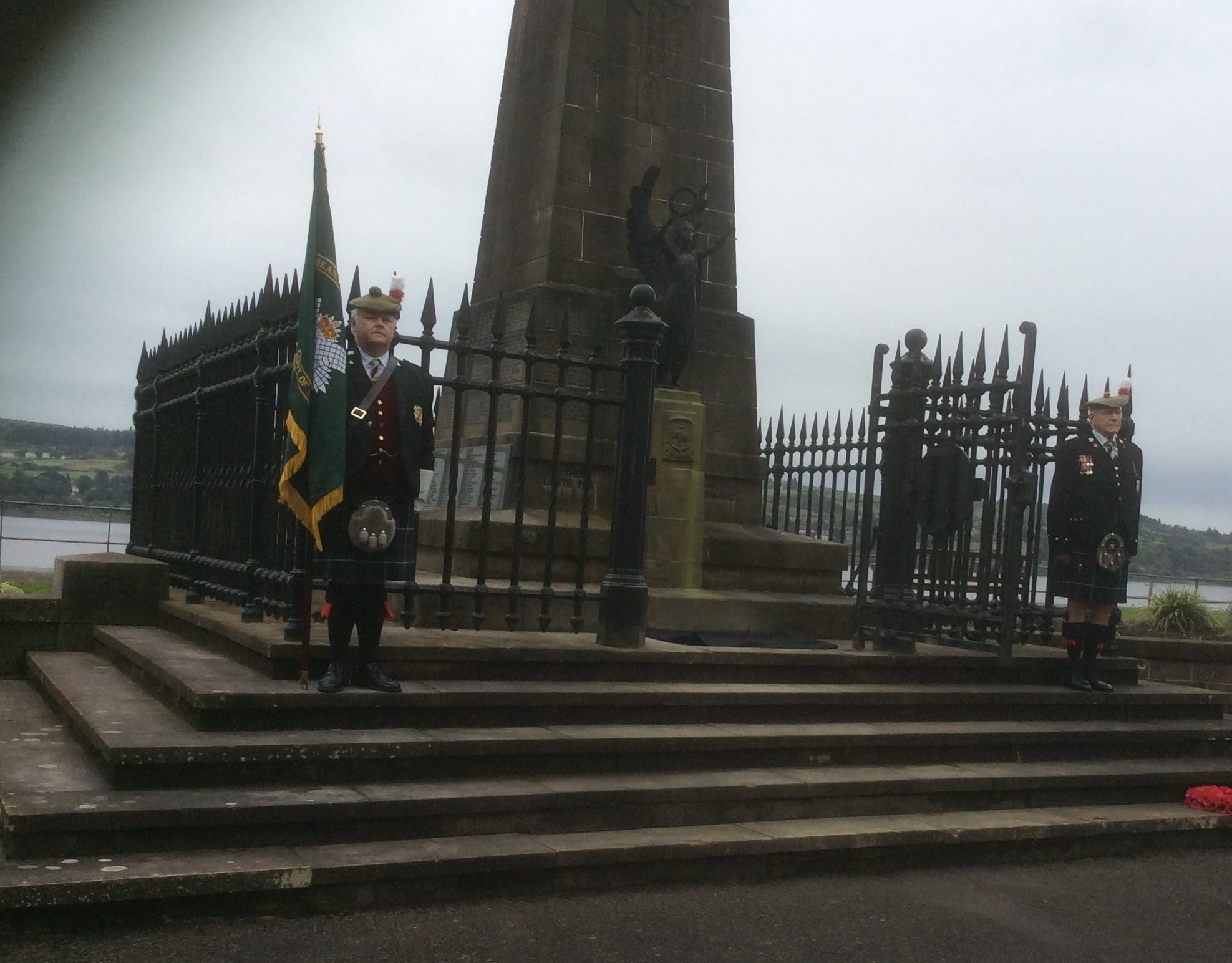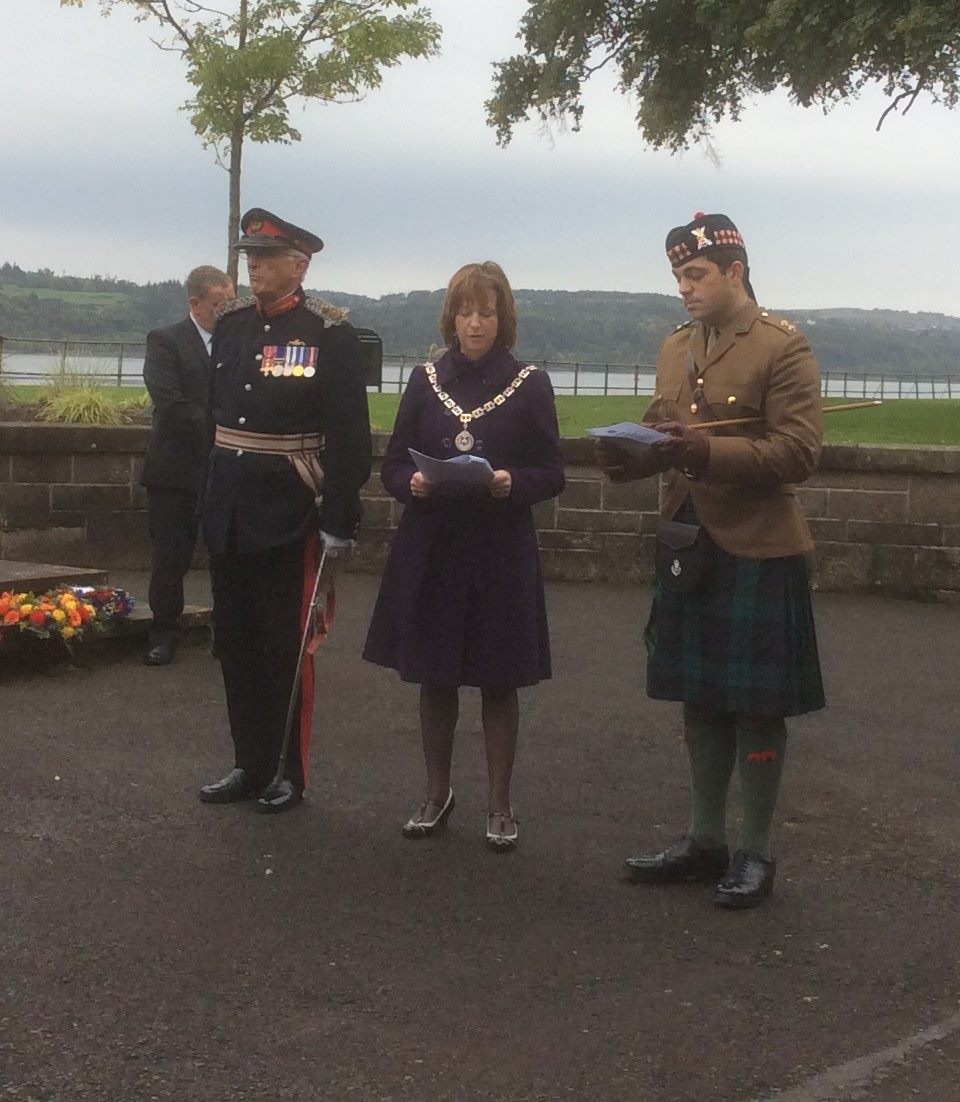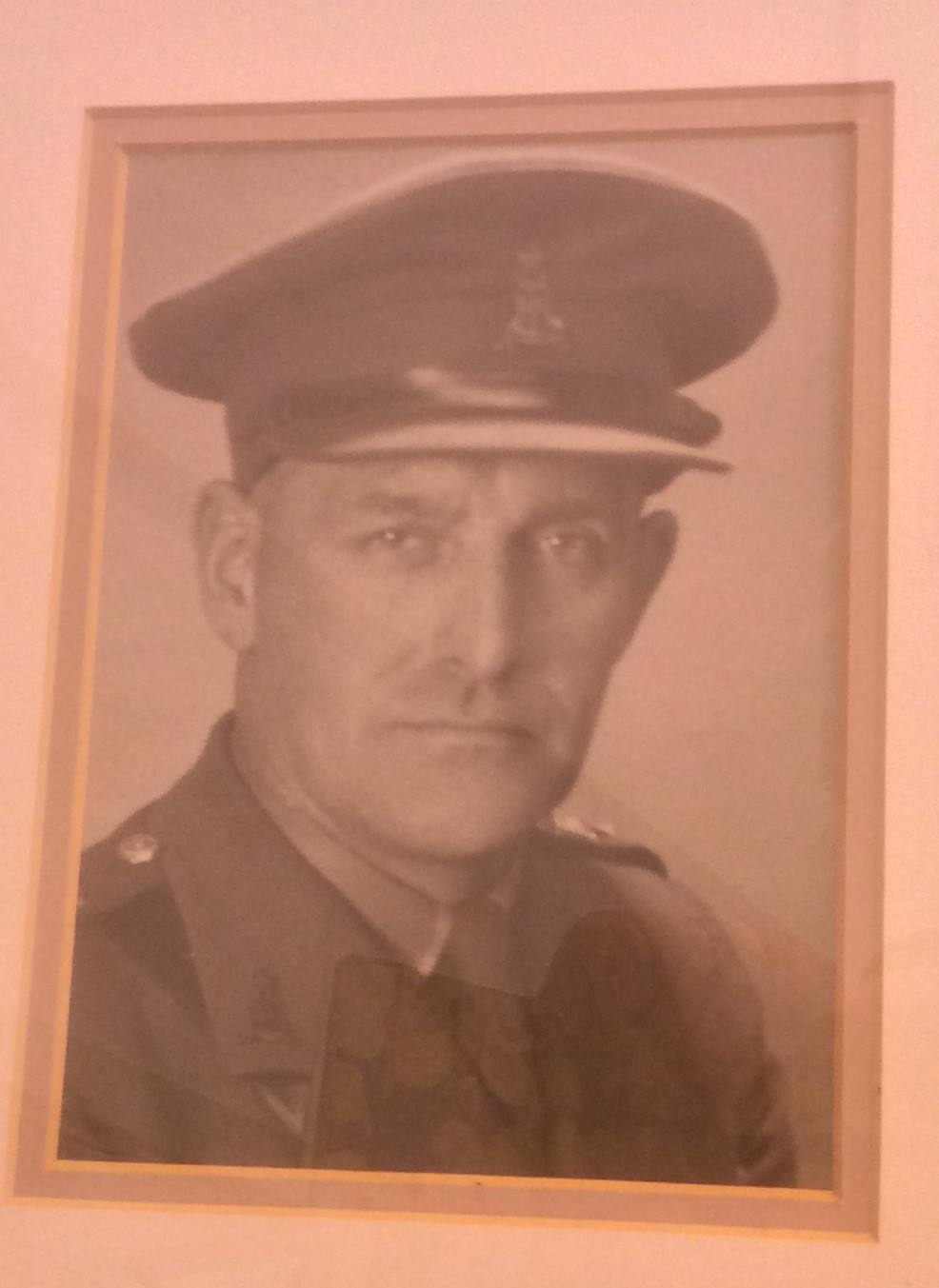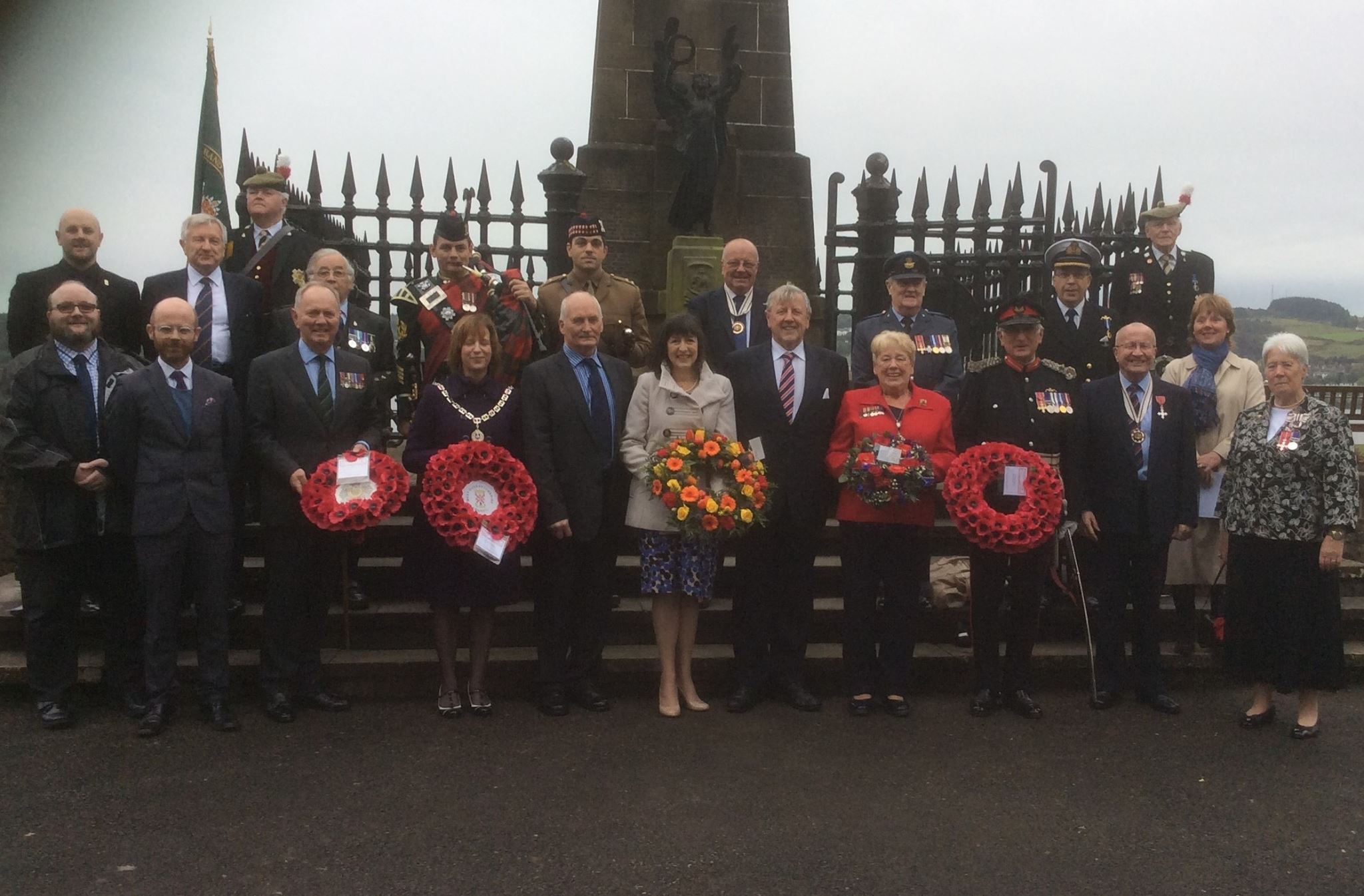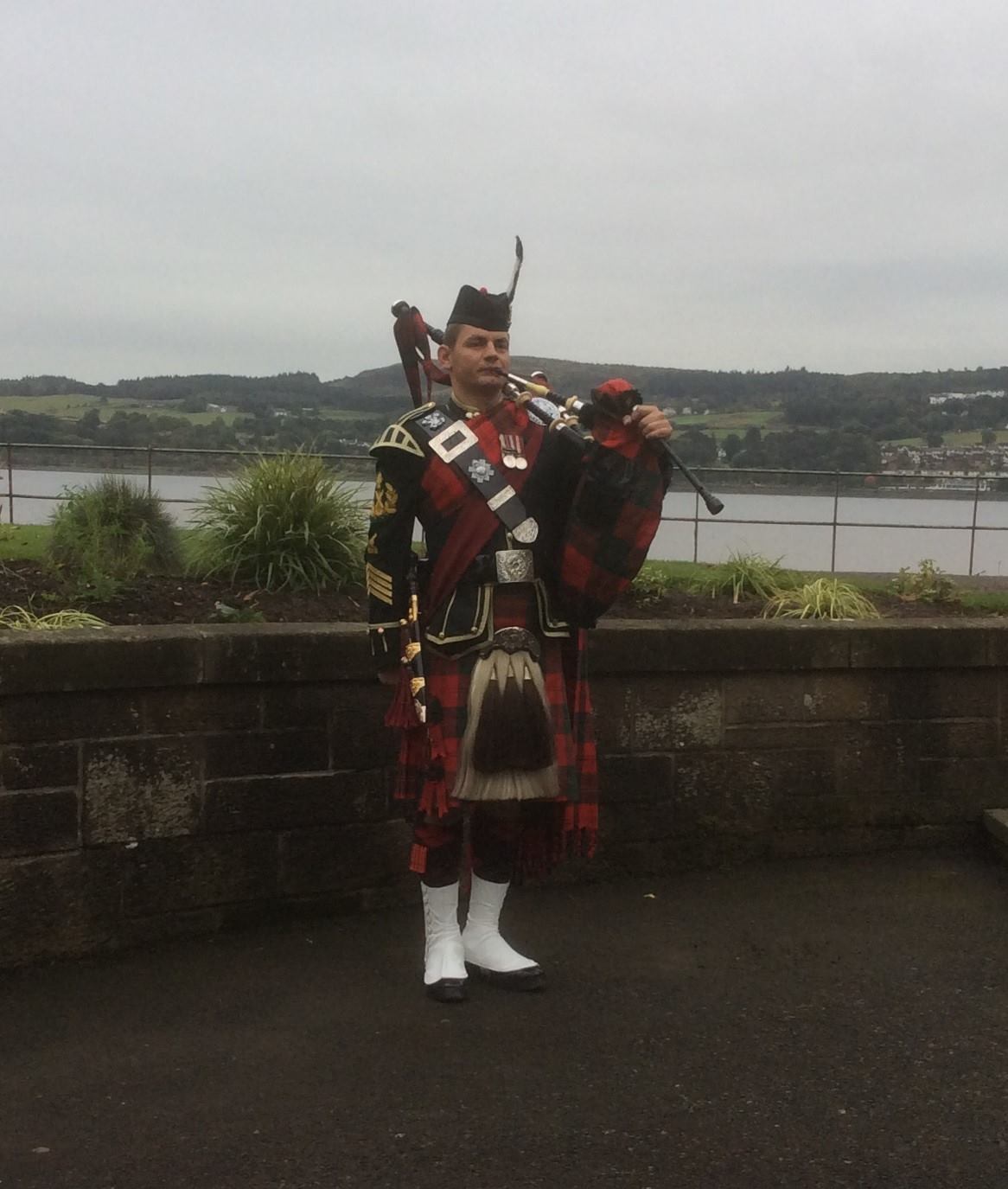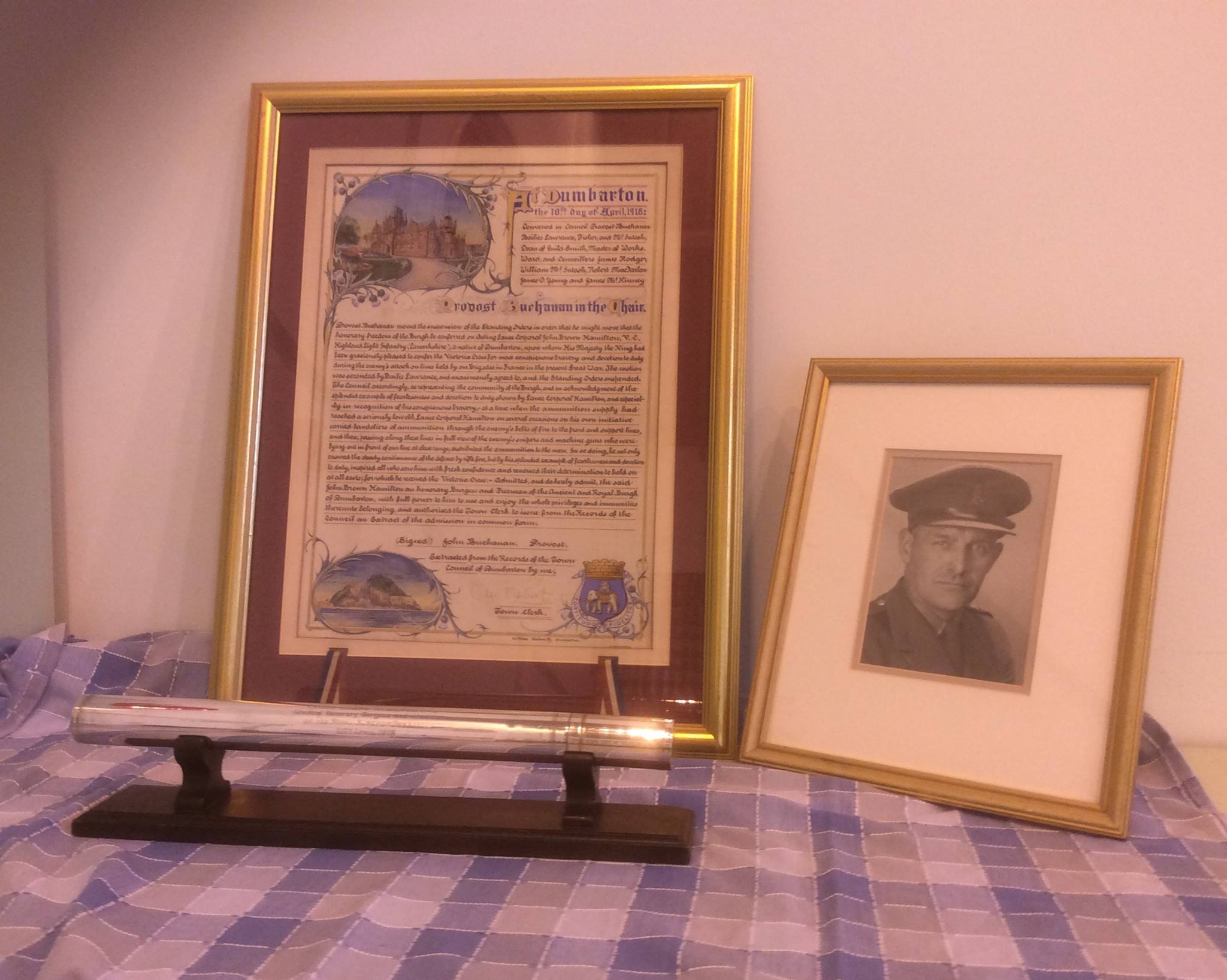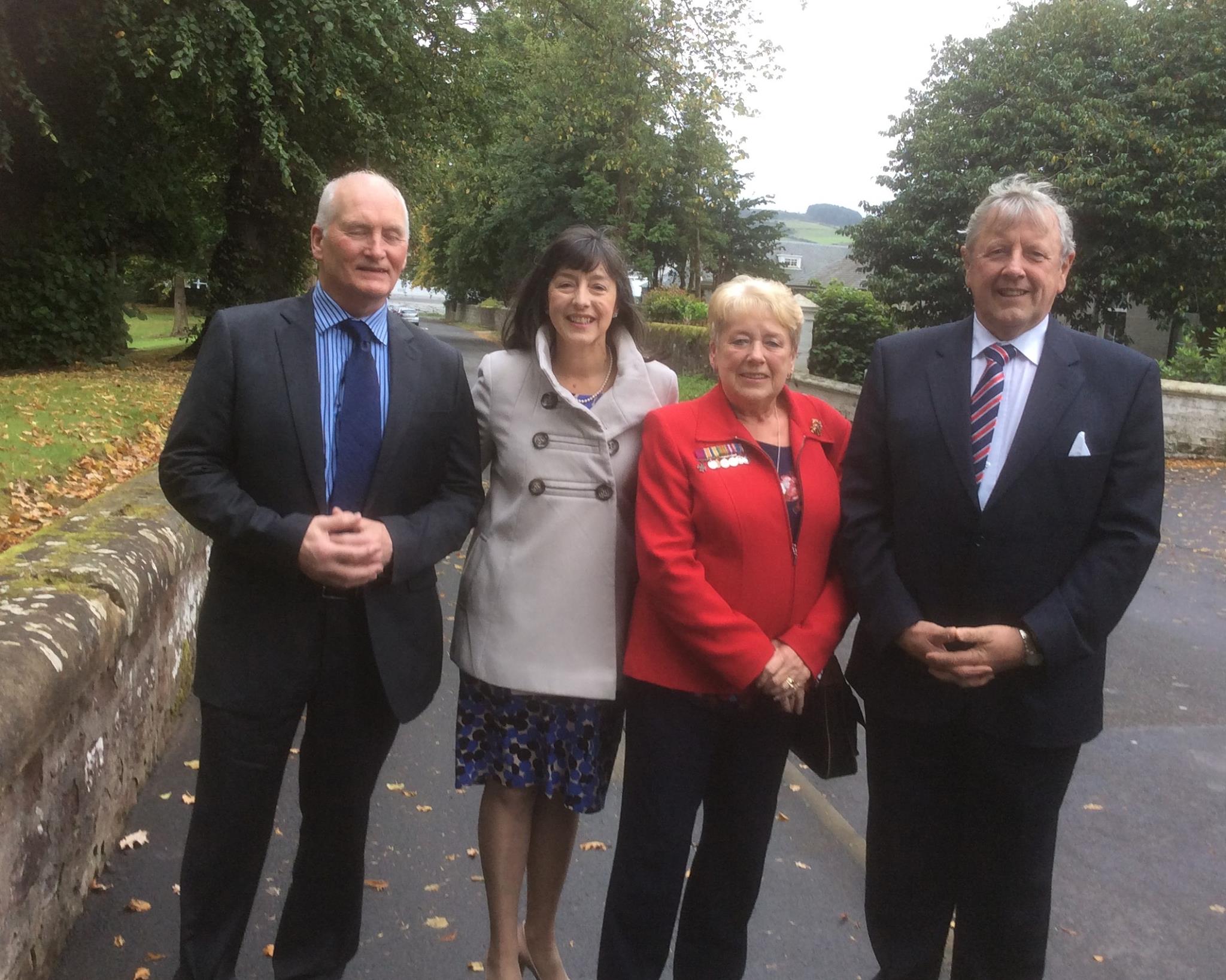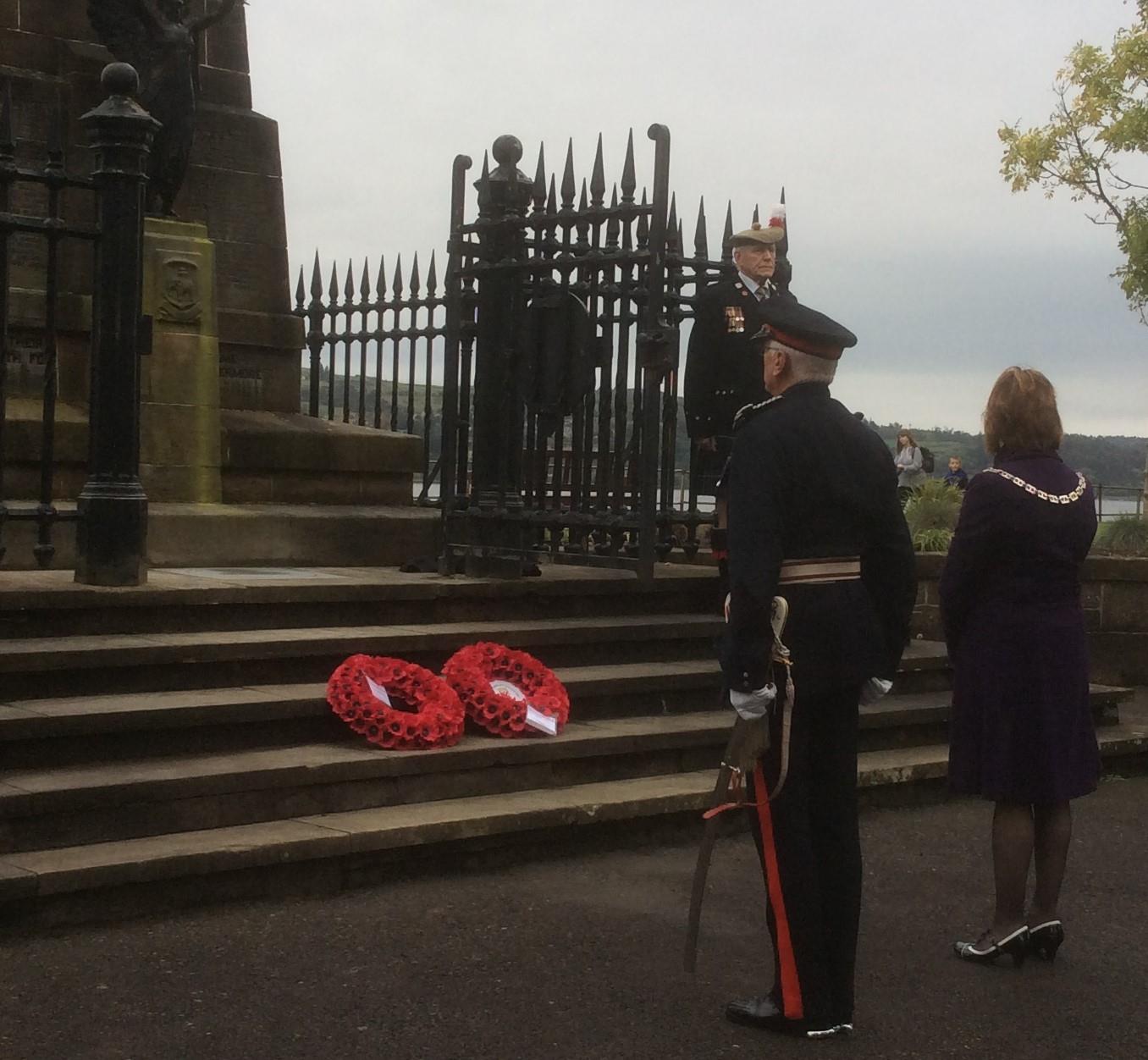John Brown Hamilton VC
- You are here
- Home
- news
- John Brown Hamilton VC
2 SCOTS Glasgow Victoria Cross
Although, sometimes windswept, Dumbarton’s war memorial, in Levengrove Park, is a wonderfully peaceful location with amazing views of the Clyde. Yesterday, 23 September, it provided the perfect setting for the small, intimate family ceremony to commemorate the centenary of the action for which John Brown Hamilton was awarded the Victoria Cross, by the unveiling of a commemorative paving stone.
The Victoria Cross, Britain’s highest honour for gallantry, was awarded to John, an Acting Lance Corporal with 1/9th (Glasgow Highlanders) Battalion, The Highland Light Infantry, for his heroic actions on 25/26 September 1917. His Battalion was to the north of the Ypres-Menin Road in Belgium and the intense artillery fire from the enemy caused difficulties in keeping the front and support line supplied with ammunition. John took the initiative and, on several occasions, carried and distributed ammunition ignoring the heavy fire from the multitude of snipers and machine-guns.
John’s paving stone was unveiled by the Lord Lieutenant of Dunbartonshire, following a short address by the Deputy Provost of West Dunbartonshire and the reading of John’s citation by Lieutenant Julian von Nehammer of The Royal Highland Fusiliers, 2nd Battalion The Royal Regiment of Scotland, the successor battalion of The Highland Light Infantry and The Royal Highland Fusiliers (2 SCOTS). Pipe Major Gillies, also of 2 SCOTS, played pipe tunes that would no doubt would have been very familiar to John and his comrades.
Wreaths were laid, including one by Major General Euan Loudon CBE, Chairman of the Regimental Trust of The Royal Highland Fusiliers and veterans from The Highland Light Infantry Association provided a small guard of honour at the gates of the memorial.
Sadly, John’s daughter was unable to attend the ceremony; however, the family was well-represented by his grandson and two grand-daughters.
Amazingly, John survived and after the war, he remained in the Army reserve and rose through the ranks. He was in hospital at the outbreak of WWII and missed mobilisation, but eventually ended the war as a Colonel in charge of an Italian prisoner of war camp in England. He died at the age of 77.
Although, he moved away from Dumbarton, John was born at 90 High Street and so definitely a Son of the Rock; thus, the location for his paving stone. John was made a Freeman of Dumbarton shortly after the war and his scroll was on display after the ceremony.
John spent most his life after the war in Cambuslang and that town successfully lobbied the UK government for a second paving stone – I understand that John is possibly unique in having two stones. His second stone will be unveiled at a small ceremony in Cambuslang on 26 September 2017.

